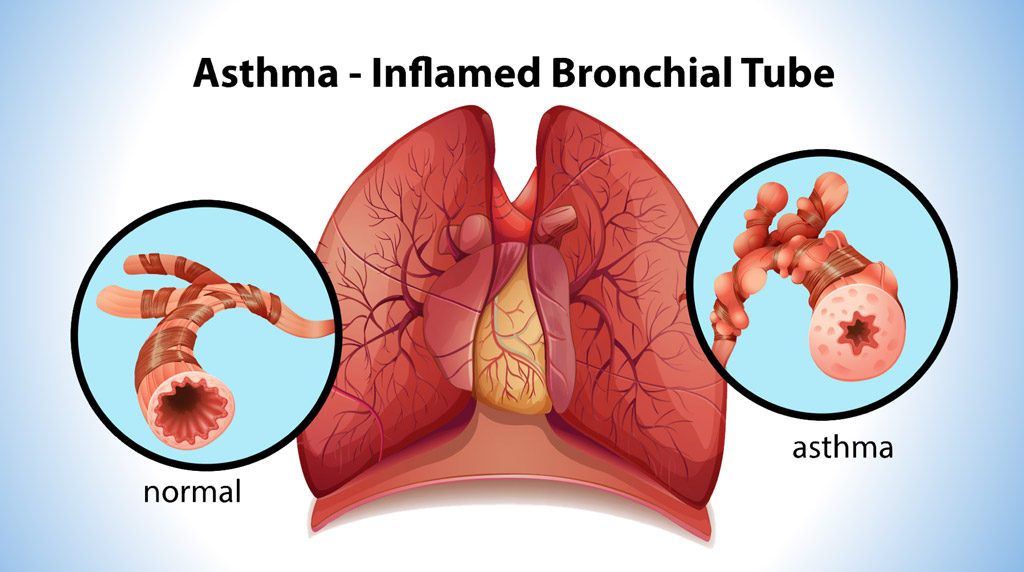Severe asthma, the most challenging form of this respiratory condition, is like a persistent storm in the lungs. It’s a relentless battle for breath, defined by symptoms that resist conventional treatments and significantly impact daily life. Yet, amidst the struggle, hope prevails. With the right knowledge, support, and treatment strategies, individuals with severe asthma can navigate the storm and reclaim a fulfilling life.
Unveiling the Severity:
Severe asthma distinguishes itself from its milder cousin by the intensity and frequency of symptoms. These can include:
- Persistent, uncontrolled wheezing: The iconic high-pitched whistle becomes a constant companion, even at rest or with minimal exertion.
- Severe shortness of breath: Every breath feels like a labor, limiting daily activities and even basic tasks.
- Frequent, debilitating asthma attacks: The usual suspects like allergens and irritants easily trigger severe attacks, requiring immediate medical attention.
- Reduced lung function: Tests reveal significantly impaired lung function, hindering the body’s ability to breathe efficiently.
- Sleep disruptions: Sleep becomes a battleground, with coughing and breathlessness stealing precious rest.
- Emotional and psychological burden: The constant struggle can lead to anxiety, depression, and social isolation.
Unraveling the Causes:
The exact cause of severe asthma remains elusive, but a complex web of factors contributes:
- Genetics: Having a family history of asthma significantly increases the risk.
- Environment: Exposure to triggers like allergens, air pollution, and smoke can exacerbate symptoms.
- Immune system dysfunction: An overactive immune system misidentifies harmless substances as threats, leading to inflammation in the airways.
- Early life factors: Viral infections and exposure to secondhand smoke in childhood can increase the risk.
Charting the Course to Diagnosis:
Diagnosing severe asthma isn’t a one-size-fits-all approach. Doctors rely on a combination of tools:
- Medical history and physical examination: A detailed account of symptoms, triggers, and response to previous treatments is crucial.
- Lung function tests: Spirometry measures the amount and speed of air breathed, revealing the extent of lung function impairment.
- Imaging tests: X-rays or CT scans may reveal structural abnormalities in the airways.
- Allergy testing: Identifying specific triggers allows for targeted avoidance strategies.
Navigating the Treatment Landscape:
While there is no cure for severe asthma, effective treatment strategies can significantly improve quality of life:
- High-dose inhaled corticosteroids: These medications are the cornerstone of treatment, reducing inflammation in the airways.
- Long-acting bronchodilators: These medications relax the airways, making breathing easier.
- Leukotriene modifiers: These medications target a different inflammatory pathway and can be helpful for some individuals.
- Biologic therapies: These targeted medications block specific immune system molecules responsible for inflammation.
- Bronchial thermoplasty: This minimally invasive procedure reduces airway narrowing in severe cases.
- Pulmonary rehabilitation: This program teaches breathing techniques, exercise strategies, and self-management skills.
Living Well Beyond the Storm:
Living with severe asthma requires a proactive approach. Here are some tips to navigate the journey:
- Build a strong relationship with your healthcare team: Regular checkups and open communication are key to managing your condition effectively.
- Become an asthma expert: Learn about your triggers, medications, and treatment plans to actively participate in your care.
- Adhere to your treatment plan meticulously: Taking medications as prescribed and attending appointments are essential for controlling symptoms.
- Identify and avoid your triggers: Be mindful of your environment and take steps to minimize exposure to known triggers.
- Stay active within your limits: Regular exercise, adapted to your capabilities, improves overall health and lung function.
- Manage stress: Stress can worsen asthma symptoms. Relaxation techniques like yoga or meditation can be beneficial.
- Connect with others: Join a support group or online community to share experiences, gain advice, and find emotional support.
Remember, you are not alone in this journey. With the right tools, support, and a determined spirit, you can navigate the challenges of severe asthma and live a fulfilling life.
For more information: fuseinfusion.com


